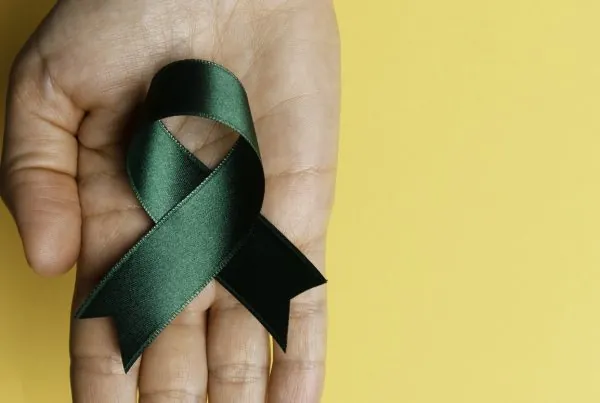As suicides continue to rise dramatically in adolescents compared to relatively steady rates in other age groups, it’s time to recognize the importance of helping our high schoolers and teens manage their mental health, particularly stress-related mood and anxiety disorders, and the rise in Internet-related victimization and self-esteem issues.
School is an especially difficult time for many high schoolers, as they are undergoing both physical and emotional changes, transitioning from a dependent childhood into the many expectations and burdens of adulthood in a precarious social and political climate. This is further complicated by the new and still under researched effects of online social media on the teen psyche.
As high schoolers develop, this also becomes a crucial time for introducing protective habits and healthy coping mechanisms that might help them deal with stressors in the future, develop a stronger feeling of independence, and grow the toolkit necessary to help manage their mental health in adulthood.
Overcoming the Stigma of Mental Health in High Schoolers
One of the more effective ways of combatting stigma and self-stigma in high schoolers is through awareness and education. Studies have shown that anti-stigma intervention programs, which aim to shed a light on some of the facts surrounding the most common and destructive mental health issues among teens, how they develop, and why they occur, can help teens better understand their peers and separate the illness from the person.
The issue of stigma is overwhelming because it can lead teens to ignore or deny their problems or turn to victimizing others for their symptoms to deflect from themselves. By minimizing the problem of mental health as being overblown or a mark of shame, many teens are missing out on the opportunity to seek help and intervention at a time in their lives when a potential mental health issue is often easier to manage and treat.
Adolescence is often the earliest and most common period of onset for many mental health issues, so identifying them during the teen years is important. Anti-stigma education can help teens become comfortable with the idea of approaching professionals regarding their problems and concerns and ease their fears and misconceptions.
Friends and Family Play an Important Role
High schoolers spend a lot of time at school, but the role of family cannot be understated. While parents might feel like they’re losing influence over their child as they become increasingly independent, parent-teen relationships remain one of the most important factors in mental health, often more so than a teen’s relationship with other high schoolers.
By approaching the topic of mental health and support seriously, and by seeking to learn more about their teen’s psychological wellbeing, parents can help teens take their treatment seriously as well. Just as important as family support is the quality of the relationship between teens and their parents. A strong, healthy parent-teen relationship – predicated through trust, high levels of communication, and low alienation – is often a good indicator of better mental health.
More Than Just Treatment
Mental health and wellness are about ultimately more than just identifying and addressing instances of mental illness. We need to worry about not just eliminating risk factors, but about promoting protective factors – about helping teens and students improve their psychological wellbeing and manage the daily stressors in their lives before these issues compound and worsen.
There are many concrete ways to help teens prioritize their mental wellbeing, past learning more about how their mood and mental health can be influenced through stress and certain self-destructive behaviour or improved through direct and indirect support and treatment. These include:
-
- Seeking out friends and peers online and elsewhere. Social connection is especially important for teens, and even more so now. Many teens haven’t been able to engage in their usual hobbies or activities with friends due to the dangers these activities might pose – and while many teens understand the responsibility they bear during a pandemic, it’s important for teens to continue to interact with one another in a healthy manner. That is where online activities can become an important source of joy and fond memories for many, whether it is through team games, Discord calls, or group workouts on Zoom.
- Prioritize sleep hygiene. With the pace at which the world is moving, it often feels like there are not enough hours in the day to get everything done. Yet at the same time, some days can feel like they are an endless crawl. This dissonance is highlighted in the early hours of the night, when anxieties, racing thoughts, and doomscrolling can keep teens up way past their bedtime. Learning to appreciate and prioritize sleep – not just because mom or dad said so, but because of the benefits of being well rested – is a greatly underappreciated part of maintaining one’s mental wellbeing.
- Limit social media hours. While it’s important to stay connected with our friends, there are still some negative elements to being constantly online – or “Too Online”, if you will. Social media is curated for each user, typically along the lines of what interests them the most. This can be great for discovering new artists, but it can lead to feeds dominated by negative headlines and news, polarizing content, and a slew of depressing data, not to mention hater discourse, and content that promotes self-loathing. Research show that it’s not necessarily social media itself, but the intensity of its use, that predicates negative impact. Self-limiting social media to certain time slots can do a lot to help teens focus on things other than their feed.
- Exercise or get moving several times a week. A few minutes of exercise per day can go a long way towards regulating mood and reducing negative thoughts, effectively having an antidepressant and calming effect on most of us.
- The quality and quantity of the exercise matters little past a certain point. What’s more important is finding something you can do consistently, and something you genuinely like doing, whether that’s hardcore weightlifting, a light swim, dancing in your room, or walking the dog.
- Plan a healthy and individualized diet. Studies show that Americans are paying more attention to what they eat, and that they generally understand the importance of a healthier diet. Yet knowing what is healthy and implementing a healthy diet are two very separate things.
Just as with exercise, it helps to take small steps and consider changes that are both realistic and consistent in the long-term. Teens should also be encouraged to take a greater part in determining what they eat, as it can be beneficial to start forming healthy eating habits at an earlier stage in life.
Coping With Mental Health Issues Through Small Lifestyle Changes
The emphasis on “small” is to focus on the first step. One of the hallmarks of school-related stress in high schoolers is the unending feeling of being constantly overwhelmed – the last thing you would want is to add onto that. However, by making small steps towards committing to one’s own mental wellbeing, teens can be encouraged to think of their needs and develop the habits needed to manage stress in the long-term, without feeling like they’re being tasked with too much.
A big part of embracing adulthood is stepping up to the plate of individual responsibility, for oneself and one is impact on others especially. But too much too quickly will backfire. Expecting teens to take on all the burden for their mental health is unwise, as well. Mental wellbeing is about both internal and external support, through self-love and healthy coping mechanisms, but also a robust relationship with friends and family, and access to important mental health resources.
Tackle different habits and strategies one at a time, encouraging teens to focus on their sleep first, or create a schedule for when they should and shouldn’t check their social accounts, and ensure that they understand they have the option to ask for help whenever they need it.








